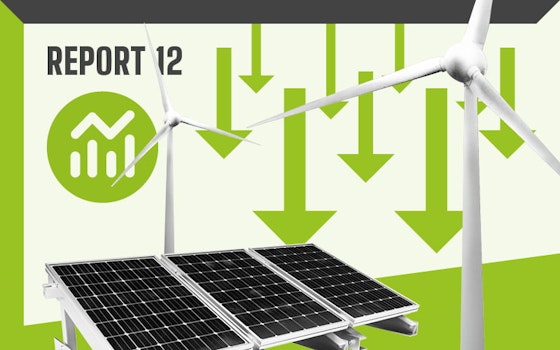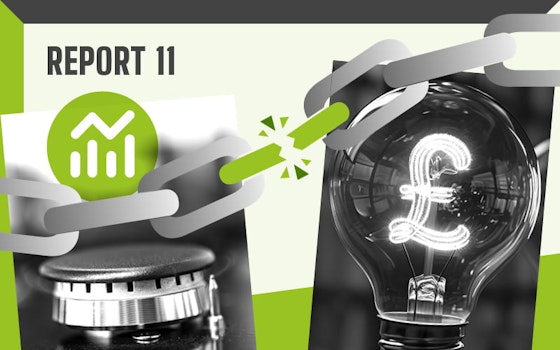
The Cold Hard Facts About Heat Pumps
Heat pumps can cut carbon, but costs and performance vary. Our report examines real-world data, bills, and what must change to make heat work for everyone.
Report releasedJanuary 26, 2026
View ReportSee the full report on the Green Britain Foundation website
The North West Green Energy Task Force was established to explore the region's potential to become a renewable energy leader. Supported by the mayors of Greater Manchester and Liverpool City Region, this initiative investigated whether the North West could generate enough green energy to meet and exceed its own needs. The findings show that the region has the capacity to produce twice the energy it requires, presenting an opportunity for economic growth, energy security, and lower consumer bills.
The report is divided into three key areas:
The renewable energy potential of the North West
Strategies for public engagement in the transition to net zero
The benefits of community and cooperative ownership of energy infrastructure
The research conducted by the task force confirmed that the North West could generate 92TWh of renewable energy annually, more than double the projected future demand of 46TWh. This energy could be sourced from:
Onshore and offshore wind
Solar (ground-based and rooftop)
Tidal energy
Green gas (bioenergy from organic materials)
Energy Independence and Economic Growth
By developing these energy sources, the North West has the potential to:
Become energy independent, reducing reliance on fossil fuels
Create tens of thousands of green jobs in renewable energy and infrastructure development
Generate £50 billion annually at current energy prices
Provide lower energy bills for residents by reinvesting profits locally
To maximise these benefits, the report suggests that renewable energy assets should be owned collectively rather than controlled by large corporations. Public and cooperative ownership models can ensure that profits are reinvested into:
Public services
Infrastructure improvements
Community projects
The Labour Party’s Great British Energy proposal could support local ownership, ensuring that economic gains stay within the region.
Public support is crucial for a successful transition to renewable energy. Research from Climate Outreach, one of the task force’s partners, indicates that most people are concerned about climate change but often feel powerless to make a difference. To address this, effective communication strategies are needed.
Building a Shared Narrative
Frame renewable energy as a forever fuel that provides long-term security
Highlight economic benefits, such as lower bills and job creation
Address the cost of living crisis and show how renewables provide relief
Tailoring Messages to Different Audiences
Avoid polarisation by ensuring messages appeal to a wide political spectrum.
Use trusted messengers such as local businesses, community leaders, and health professionals, rather than politicians or activists.
Strengthening Public Trust
A significant portion of the UK public feels the system is rigged against them.
Ensuring fairness in energy transition policies can help build trust and participation.
Providing Tangible Ways to Get Involved
Offer community investment opportunities where local people can own part of renewable energy projects.
Increase education and awareness about energy efficiency and green jobs.
The report urges metro mayors to:
Lead by example in promoting clean energy projects.
Hold the central government accountable for meeting climate commitments.
Ensure local communities are consulted in decision-making.
Community energy projects can:
Empower local residents by allowing them to invest in renewables
Create jobs in installation, maintenance, and operations
Strengthen local economies by keeping profits within the community
Successful examples of cooperative energy projects include:
Baywind Energy Co-operative (Cumbria, UK) – One of the UK’s oldest community-owned wind farms
Grimsby Community Energy – A solar energy cooperative that has installed panels on community buildings
Samso Island (Denmark) – A fully energy-independent island powered by locally owned renewables
The task force recommends multi-stakeholder cooperatives, combining:
Public ownership (e.g., local councils)
Private investment
Community shares
This model ensures that decision-making is democratic and that energy profits benefit the people who live in the North West.
The North West’s renewable energy potential presents an unparalleled opportunity to:
Achieve energy security and independence.
Reduce reliance on fossil fuels
Create thousands of high-quality green jobs
Provide cheaper and cleaner energy for residents
Develop a community-owned energy system that reinvests in local people
This transition is not just about hitting net zero targets—it is about economic regeneration, fairness, and long-term prosperity. By taking bold action now, the North West can lead the UK in building a green and resilient future.
Heat pumps can cut carbon, but costs and performance vary. Our report examines real-world data, bills, and what must change to make heat work for everyone.
Report releasedJanuary 26, 2026
View ReportHow lower electricity prices could boost growth, cut inflation and leave every Brit better off
Report releasedDecember 11, 2025
View ReportA practical plan to bring prices down, tackle inequality and stabilise our economy
Report releasedOctober 27, 2025
View ReportA new plan to end Britain’s dependence on gas prices and bring down electricity costs
Report releasedOctober 27, 2025
View Report

